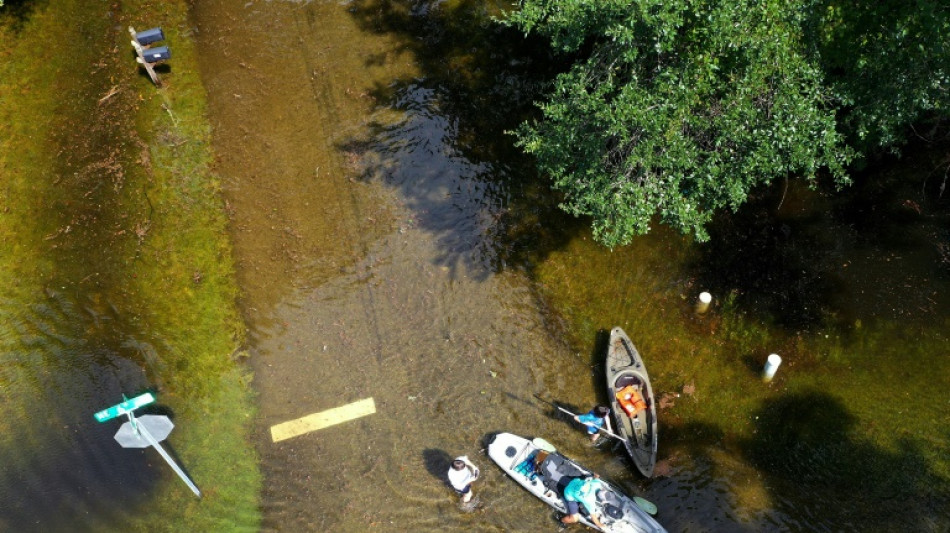
-
 Kamindu fireworks rescue Sri Lanka to 163-6 against Ireland
Kamindu fireworks rescue Sri Lanka to 163-6 against Ireland
-
UK PM's top aide quits in scandal over Mandelson links to Epstein

-
 Reed continues Gulf romp with victory in Qatar
Reed continues Gulf romp with victory in Qatar
-
Conservative Thai PM heading for election victory: projections

-
 Heartache for Olympic downhill champion Johnson after Vonn's crash
Heartache for Olympic downhill champion Johnson after Vonn's crash
-
Takaichi on course for landslide win in Japan election

-
 Wales coach Tandy will avoid 'knee-jerk' reaction to crushing England loss
Wales coach Tandy will avoid 'knee-jerk' reaction to crushing England loss
-
Sanae Takaichi, Japan's triumphant first woman PM

-
 England avoid seismic shock by beating Nepal in last-ball thriller
England avoid seismic shock by beating Nepal in last-ball thriller
-
Karl defends Olympic men's parallel giant slalom crown

-
 Colour and caution as banned kite-flying festival returns to Pakistan
Colour and caution as banned kite-flying festival returns to Pakistan
-
England cling on to beat Nepal in last-ball thriller

-
 UK foreign office to review pay-off to Epstein-linked US envoy
UK foreign office to review pay-off to Epstein-linked US envoy
-
England's Arundell eager to learn from Springbok star Kolbe

-
 Czech snowboard great Ledecka fails in bid for third straight Olympic gold
Czech snowboard great Ledecka fails in bid for third straight Olympic gold
-
Expectation, then stunned silence as Vonn crashes out of Olympics

-
 Storm-battered Portugal votes in presidential election run-off
Storm-battered Portugal votes in presidential election run-off
-
Breezy Johnson wins Olympic downhill gold, Vonn crashes out

-
 Vonn's Olympic dream cut short by downhill crash
Vonn's Olympic dream cut short by downhill crash
-
French police arrest five over crypto-linked magistrate kidnapping

-
 Late Jacks flurry propels England to 184-7 against Nepal
Late Jacks flurry propels England to 184-7 against Nepal
-
Vonn crashes out of Winter Olympics, ending medal dream

-
 All-new Ioniq 3 coming in 2026
All-new Ioniq 3 coming in 2026
-
New Twingo e-tech is at the starting line

-
 New Ypsilon and Ypsilon hf
New Ypsilon and Ypsilon hf
-
The Cupra Raval will be launched in 2026

-
 New id.Polo comes electric
New id.Polo comes electric
-
Iran defies US threats to insist on right to enrich uranium

-
 Seifert powers New Zealand to their record T20 World Cup chase
Seifert powers New Zealand to their record T20 World Cup chase
-
Naib's fifty lifts Afghanistan to 182-6 against New Zealand

-
 Paul Thomas Anderson wins top director prize for 'One Battle After Another'
Paul Thomas Anderson wins top director prize for 'One Battle After Another'
-
De Beers sale drags in diamond doldrums

-
 NFL embraces fashion as league seeks new audiences
NFL embraces fashion as league seeks new audiences
-
What's at stake for Indian agriculture in Trump's trade deal?

-
 Real Madrid can wait - Siraj's dream night after late T20 call-up
Real Madrid can wait - Siraj's dream night after late T20 call-up
-
Castle's monster night fuels Spurs, Rockets rally to beat Thunder

-
 Japan votes in snow-hit snap polls as Takaichi eyes strong mandate
Japan votes in snow-hit snap polls as Takaichi eyes strong mandate
-
Pakistan's capital picks concrete over trees, angering residents

-
 Berlin's crumbling 'Russian houses' trapped in bureaucratic limbo
Berlin's crumbling 'Russian houses' trapped in bureaucratic limbo
-
Neglected killer: kala-azar disease surges in Kenya

-
 Super Bowl set for Patriots-Seahawks showdown as politics swirl
Super Bowl set for Patriots-Seahawks showdown as politics swirl
-
Sengun shines as Rockets rally to beat NBA champion Thunder

-
 Matsuyama grabs PGA Phoenix Open lead with Hisatsune one back
Matsuyama grabs PGA Phoenix Open lead with Hisatsune one back
-
How Dental Implants Can Improve Your Quality of Life in Bonita Springs

-
 Washington Post CEO out after sweeping job cuts
Washington Post CEO out after sweeping job cuts
-
Haiti's transitional council hands power to PM

-
 N. Korea to hold party congress in February, first since 2021
N. Korea to hold party congress in February, first since 2021
-
Thailand votes after three leaders in two years

-
 Swiss joy as Von Allmen wins first gold of Winter Olympics
Swiss joy as Von Allmen wins first gold of Winter Olympics
-
George backs England to 'kick on' after Six Nations rout of Wales


How climate change boosts hurricanes
Scientists are sounding the alarm on human-caused climate change's impact on hurricanes such as Idalia, which rapidly intensified over a warm Gulf of Mexico before making landfall in Florida on Wednesday.
Here's what you need to know.
- Record-warm oceans counter El Nino -
Back in May, the US National Oceanic and Atmospheric Administration (NOAA) predicted a "near normal" Atlantic hurricane season, which runs from June 1 to November 30.
That was in large part because of the El Nino global weather pattern, which causes a higher than average "vertical wind shear" in the Atlantic, which in turn suppresses hurricane activity.
"If you have big changes in the wind with height, that tends to import dry, lower-energy air into the core of a tropical cyclone and prevent it from strengthening," Allison Wing, an atmospheric scientist at Florida State University, told AFP.
But come August, NOAA increased its forecast prediction for the season to "above normal," based on ocean and atmospheric conditions "such as record-warm Atlantic sea surface temperatures" that "are likely to counterbalance the usually limiting atmospheric conditions associated with the ongoing El Nino event."
"It's been a sort of tricky year in terms of thinking about the whole seasonal forecast because we have these two opposing factors," said Wing.
- What is known about climate change -
One-eye catching example: on July 24 a buoy off the southern tip of Florida recorded an alarming peak temperature of 101.1 degrees Fahrenheit (38.4 Celsius), readings more commonly associated with hot tubs, and a possible new world record.
"Warm waters, both at the surface of the ocean and beneath, provide the fuel that intensifies tropical storms and hurricanes," said Michael Mann, a climatologist at University of Pennsylvania. "That allows them to both intensify faster and attain higher maximum intensities."
You still need the right conditions to lead to hurricane formation -- but when they come along, storms will take advantage of warming oceans to generate fiercer winds and cause bigger storm surges.
"You can think of climate change as sort of like loading the dice," added Wing. "There's still a variety of different possible outcomes for any individual storm, but you have a greater chance of having those high-intensity storms."
Apart from affecting the maximum intensity of hurricanes, climate change can also increase the amount of rain they are able to dump, Andrew Kruczkiewicz, an atmospheric scientist and researcher at the International Research Institute for Climate and Society at Columbia University, told AFP.
"The warmer the atmosphere is, the greater the capacity for water," he said. "This can mean increased intense precipitation events."
Kruczkiewicz added he was personally worried people who had moved inland to escape Idalia could find themselves caught nonetheless in extreme weather.
Last year, climate change boosted Hurricane Ian's rainfall by at least 10 percent, according to recent research.
- Seasons getting longer -
There's increasing evidence that the storm season itself is getting longer, as the window during which ocean surface temperatures support tropical storm formation begins sooner and ends later, said Mann -- a relationship that appears to hold true in both the Atlantic hurricane basin and the Bay of Bengal.
While there is ample research that climate change is making hurricanes more dangerous, whether it is also making them more frequent is much less certain and more study is required.
P.Mathewson--AMWN


